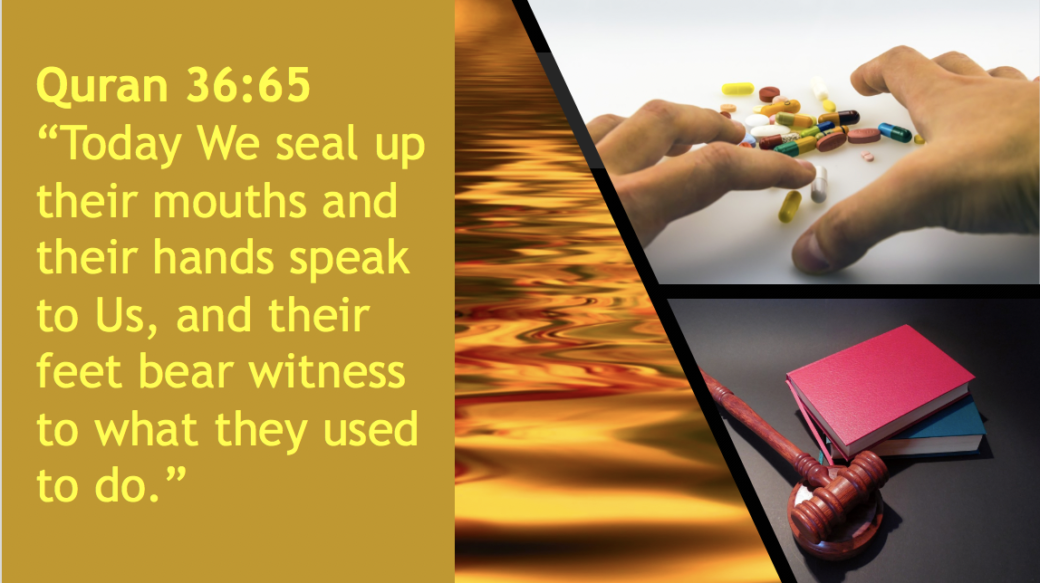
The journey of our soul
The Quran teaches that all human souls were created long before human forms were created (Quran 7:172). This indicates that the soul’s existence predates the formation of the physical body. The soul is infused into the body during the embryonic stage. Notably, the Quran emphasizes that life is a journey, not a final destination. Consequently, Muslims understand earthly existence as part of the endless journey of the soul.
What is the soul?
Quran 17:85. “…And they ask you about the soul. Say: The soul is one of the commands of my Lord, and you are not given aught of knowledge but a little.”
While Allah has revealed limited knowledge about the nature of the soul, the Quran describes the various qualities He has imbued it with. According to the Quran, Allah assigned our souls a physical body for a specific time to serve as His representatives on Earth (Quran 2:30). As His emissaries, our responsibilities include submitting to the One God and caring for other humans, animals, plants, and the environment.
Souls are born in innocence.
According to the Quran, human souls are born in a state of innocence and purity, as Islam does not support the concept of original sin as Christians believe. As children mature and understand right and wrong, their wrongful actions are deemed sinful. Humans possess a unique ability to choose, reasoning, and access to Divine guidance. These faculties enable them to fulfill their purpose, do good, and avoid sin. https://qpeace.net/?p=878

Soul’s natural predisposition to goodness
Allah created humans with an inherent spiritual goodness and awareness of the Divine (Quran 91:7-9 and 7:172). The Quran mentions that during creation, Allah allowed some of His spirit to enter the human soul (Quran 32:9 and 38:72), and He imbibed the spiritual goodness and awareness of the Divine. The Quran describes these as the “Natural Predisposition” (Fitrah) of human souls. Allah encourages humans to align their actions with this primordial nature of goodness while warning them against distorting the natural predisposition bestowed upon them by God.
Quran 30:30. “Orient your face towards the true religion in an upright manner, in the primordial nature from God, upon which He created humanity. Let there be no alteration in the creation of God. That is the upright religion; however, most people do not realize it.”
Those who nurture their primordial goodness are described in the Quran as the successful ones, while those who suppress the God-given Fitrah are the ones who face failure. (Quran 91:7-9).
Quran 91:7-9. “..By the soul and the One who fashioned it in proportion, guiding it to understanding piety and the sin. Surely successful is the one who causes it to grow in purity. And surely failed is the one who causes to suppress it.”
Souls are separated from the body at death.
Once death separates the body from the soul, the body disintegrates while the soul continues its journey. The soul enters a temporary interim period where righteous souls rest comfortably while unjust souls experience the consequences of their deeds. Thus, all human souls who have passed away are experiencing this interim phase in their eternal journey.
The arrival of the Judgement Day

The interim phase will conclude with the arrival of Judgment Day when Allah will recreate the physical bodies of all humans. While Allah is all-knowing, He will grant different parts of the body the ability to communicate, allowing them to bear witness to the actions performed during life on Earth. Hands will testify to the deeds they executed, while legs will recount where they led. As the All-Knowing Creator, Allah knows all actions before they are undertaken. To ensure fairness in judgment, the human body will be a material witness to its actions.

The eternal journey of the soul
In due time, the Day of Judgment will end, and the souls will proceed on their journey to eternity. Their happiness or sadness will depend on whether their good deeds outweigh their evil deeds and if their wrongdoings receive Divine Mercy and Forgiveness. The ultimate power of forgiveness belongs solely to Allah, the all-powerful. As His creation, Muslims believe in Allah’s infinite mercy and His ability to forgive.. https://www.islamicity.org/7887/seven-stages-of-life-in-islam/
Quran 6:12- “…To who belongs whatever is in the heavens and earth?” Say, “To Allah. He has decreed mercy upon Himself….”
The Divine Mercy
The highest aspiration of Divine Mercy inspires Muslims to do good toward all creations, align with Allah’s guidance, and seek His pleasure throughout their lives. The Quran describes them as the “tranquil soul” (Arabic: “Nafsul Mutmainna”), one who finds peace by following Allah’s guidance and performing righteous deeds. The Quran assures that Allah will welcome these pious souls into paradise after the Day of Judgment.


2 Trackbacks / Pingbacks